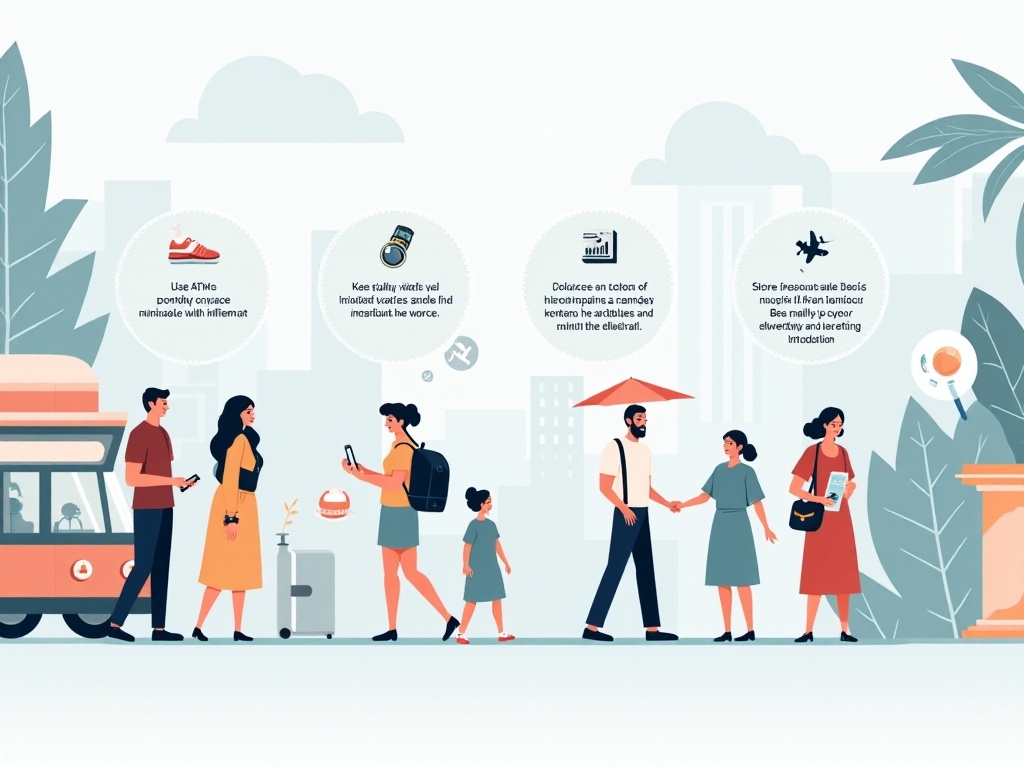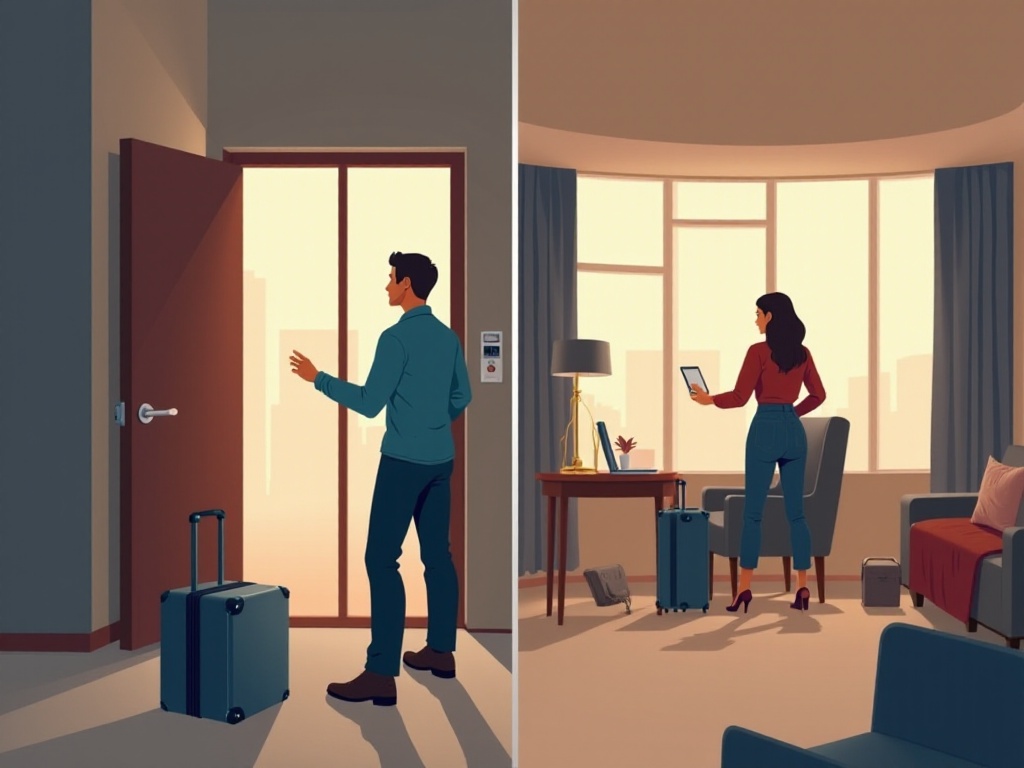
Opening Chat
As a seasoned backpacker who has traveled to over 30 countries, I deeply understand the importance of ensuring accommodation and personal safety when traveling alone. In every unfamiliar city, safety is always the top priority. However, with proper preparation, there's really no need to worry too much! Today, I'd like to share my years of experience from wandering abroad, hoping to help you enjoy your travels with more peace of mind.
Accommodation Safety
Regarding accommodation safety, I have a well-tested "three-step" approach that always helps me find safe and comfortable places to stay.
Pre-booking research is super important! I usually spend several hours, sometimes even a whole day, researching accommodation locations. It's not just about checking ratings; you need to be like a detective, carefully reading every review, especially those about safety. For example, when I was planning my trip to Barcelona, through careful review reading, I discovered that a highly-rated hostel was actually located in an unsafe neighborhood. Although the hostel's facilities looked great and the price was tempting, I didn't hesitate to switch to another one in a safer area downtown. Later, chatting with local friends, I learned that the neighborhood I originally planned to stay in often had theft incidents at night - thinking back, that decision was absolutely right.
Speaking of advance booking, this is really crucial! My advice is to secure accommodation at least a week, preferably two weeks, in advance. Why so early? Because I've noticed many people have a common problem - they think finding rooms at the last minute is fine, only to discover upon arrival that all the good places are booked. Last year in London, I met a couple who thought London had plenty of hotels, so there was no need to book in advance. They ended up having to stay in a remote budget hotel because downtown hotels were either full or frighteningly expensive. The environment was poor, and they encountered drunk guests causing trouble at night, unable to sleep well. Seeing their experience made me even more convinced of the importance of advance booking.
Safety measures during the stay are equally important. Every time I arrive at a new place, I act like a safety inspector, carefully checking all doors and windows. Verifying that door locks are secure and windows close properly - no detail can be overlooked. Once in Tokyo, I found that the hostel room window couldn't close properly, and I immediately requested a room change. Although it might seem picky, such "trouble" is worth it for safety.
Regarding valuable items, I have an iron rule: if there's a safe in the room, use it. If not, keep valuables with you. Many backpacks now have anti-theft hidden pockets where you can store passports and cash. Additionally, I prepare a hidden waist pack to store valuables when going out - both safe and convenient.
Another particularly important point is social safety. While it's natural to make new friends while traveling, remember: never easily disclose your accommodation information to strangers. Even with seemingly friendly people, maintain basic vigilance. I usually use vague descriptions like "I'm staying near downtown" rather than specifying the hotel name or location.

Luggage Management
When it comes to luggage management, there's really a lot to learn. I've noticed many people tend to buy branded products when choosing suitcases or backpacks, thinking expensive means better. But after so many trips, I want to say: the most expensive isn't necessarily the most suitable.
The most important factors in choosing bags are practicality and security. For example, my current backpack looks ordinary but was carefully selected. It uses anti-cut material, has hidden zippers, and anti-theft lock design. Most importantly, it doesn't attract attention. I remember when I first started traveling, I used a branded suitcase, only to find it not only attracted thieves' attention but also got scratched easily, which was heartbreaking. The ordinary backpack I've used for over two years has never had any problems.
Internal organization of the backpack is also crucial. I categorize everything, putting valuables in the most concealed hidden pockets and frequently used items in easily accessible places. This not only makes things easy to find but also allows quick verification if items are missing in emergencies.
Regarding personal items, I strongly advocate the "minimization principle." This principle sounds simple but isn't easy to follow. First, with cash, I usually only carry enough for two to three days. Why? Because almost everywhere accepts credit cards now, and ATMs are everywhere, there's no need to risk carrying too much cash.
For credit cards, I carry one main card and one backup, stored separately. The main card goes in my wallet, while the backup is hidden in a concealed location in my luggage. This way, if I accidentally lose my wallet, I still have a backup card for emergencies. I remember my first trip to Southeast Asia, I carried several credit cards and a large amount of cash, worried about card acceptance. I ended up being anxious the entire trip, afraid of losing my wallet. Looking back, I was just creating trouble for myself.
As for jewelry, my advice is to keep it simple. When traveling, wearing expensive jewelry not only attracts trouble but can also easily get lost or damaged during various activities. I usually only wear simple accessories that don't attract attention and wouldn't be too upset if lost.
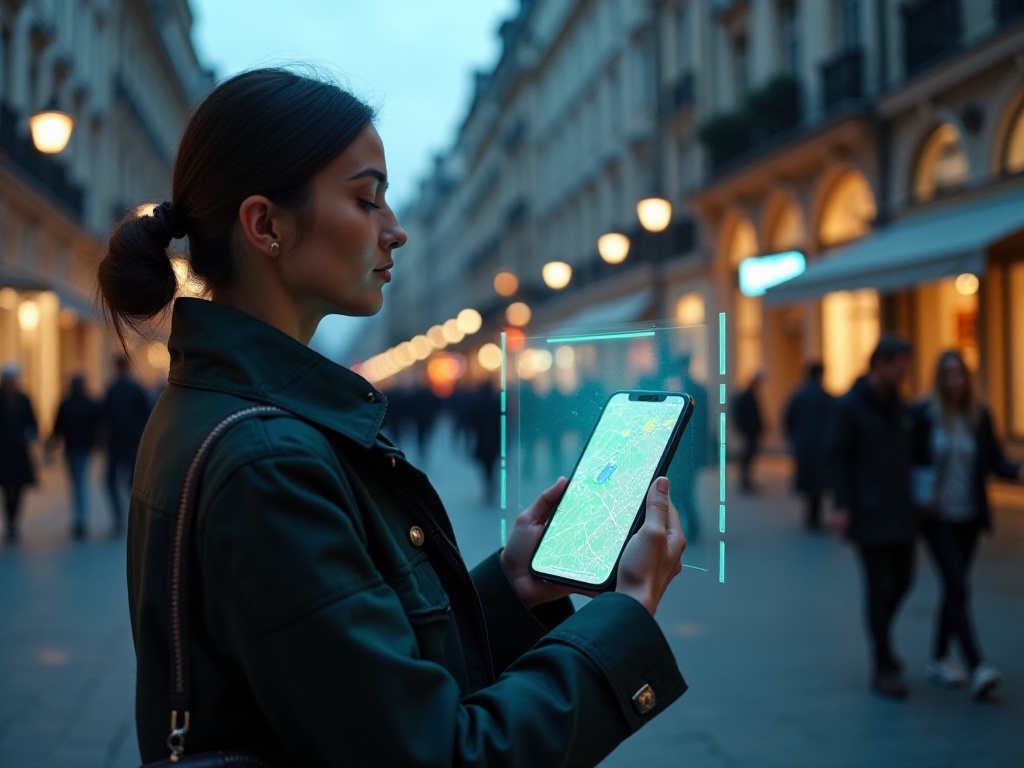
Document Management
Safe document management is one of the most important aspects of the entire trip. I've developed a "triple insurance" method that has proven very effective in my many travels.
First, always carry the originals with you, but pay attention to storage methods. I keep my passport in a waterproof bag, then in an inner pocket close to my body. Why use a waterproof bag? Because I once witnessed a travel companion's passport get soaked in a downpour, making the information illegible and causing major problems.
Second, keep copies separately. I prepare two copies, one in the suitcase compartment and another at the accommodation. This way, if the original is lost, the copies can serve as proof for replacement. Also, in some situations, like checking in, showing a copy is sufficient without having to hand over the original.
Finally, scan all important documents and store them in the cloud. I scan all important documents like passports, visas, and insurance policies and save them in cloud storage. This way, anywhere in the world with internet access, I can retrieve electronic versions of these documents. Once when applying for temporary documents abroad, I retrieved my passport scan from the cloud on my phone, which greatly expedited the process.

Scam Prevention
When it comes to avoiding scams, the most important principle is: there's no such thing as a free lunch. This might sound cliché, but it's absolutely true.
I've encountered various scams while traveling. For instance, last year in Rome, I met someone claiming to be a local guide who offered to take us to a "Michelin-starred restaurant" for a special discount. He spoke convincingly and even showed some official-looking credentials. However, I noticed his overly enthusiastic attitude and constant pressure to make an immediate decision. These were suspicious signals. Sure enough, I later learned from local friends that this was a common scam - those so-called "Michelin restaurants" were actually ordinary restaurants that would present astronomical bills.
Another time in Paris, I encountered the "ring scam" on the street. They pretend to find a gold ring on the ground, claim it's yours, and while you're examining the ring, their accomplice targets you. So my principle now is: be wary of strangers' kindness, especially those who actively approach or offer help.
Be especially careful around tourist attractions. Many scammers pose as guides or photographers offering "special services." They usually say enticing things like "I know a perfect photo spot" or "I can take you to places only locals know." At these times, you must be alert and best to politely decline.
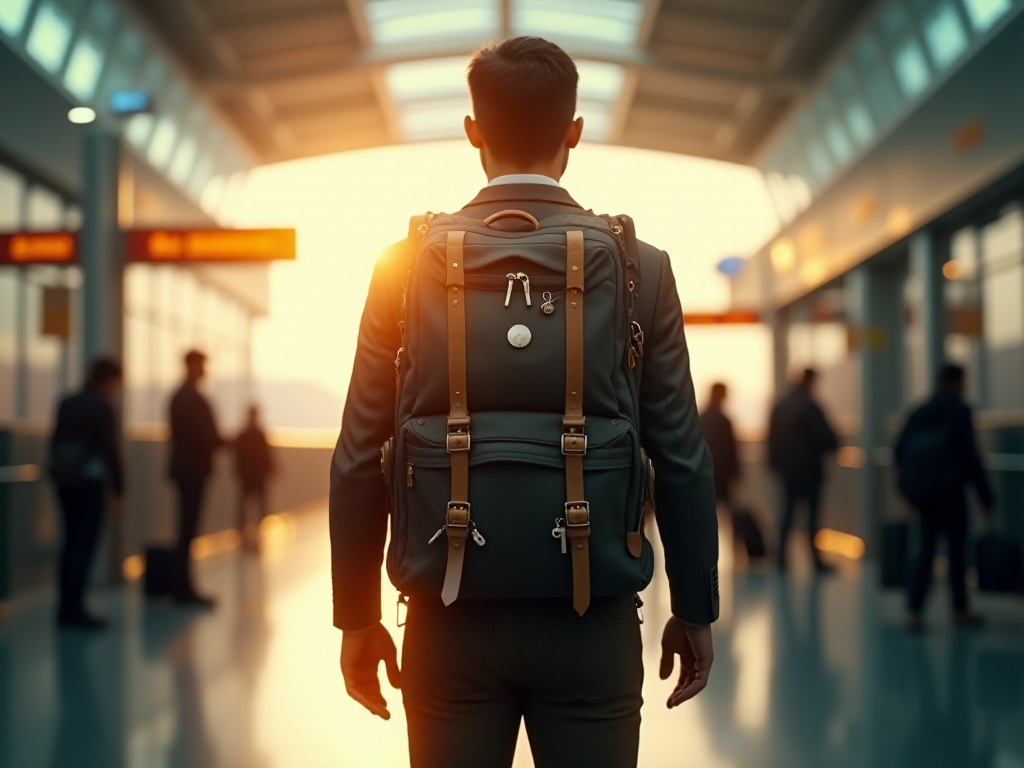
Emergency Handling
Speaking of emergency preparation, this is a part many people easily overlook but is actually very important. First, I save all local emergency contact numbers in my phone, including police, ambulance, embassy, etc. But storing them in the phone isn't enough; I also write these numbers in a notebook I carry. Why do this? Because phones can run out of battery, get lost, or stolen. Having a paper backup becomes particularly important in emergencies.
I also learn about local medical conditions in advance. In every new city, I locate nearby hospitals, especially those that provide English services. Meanwhile, I prepare a small medical kit with common medications like cold medicine, pain relievers, band-aids, etc.
When traveling, I pay special attention to maintaining communication. Besides ensuring my phone has sufficient battery, I also carry a power bank. In some remote areas, I download offline maps in case there's no network.
Having fun is important, but moderation is key. Especially in bar districts, staying sober is crucial. My advice is, if you want to experience local nightlife at bars, it's best to find reliable companions. Even when traveling alone, you can meet trustworthy friends through hostels to go together. I remember once in Amsterdam, I went out with some travelers I met at the hostel - we looked out for each other and had both an enjoyable and safe time.
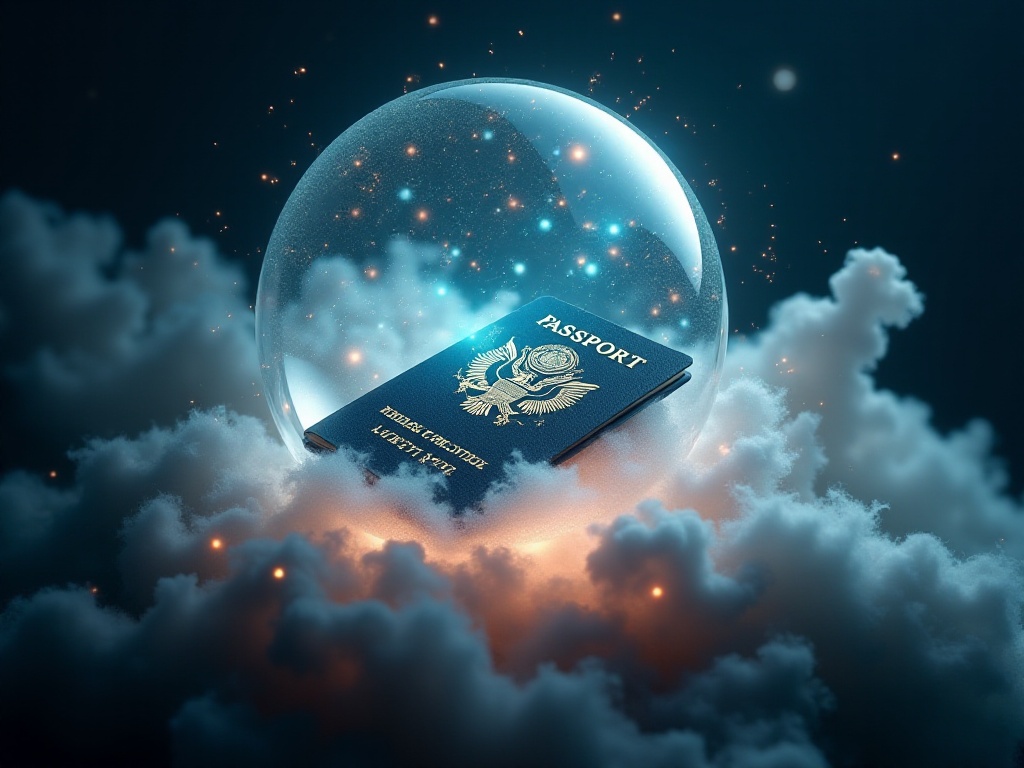
Closing Thoughts
Looking back on these years of travel experiences, I deeply feel that: solo travel isn't scary at all with proper preparation. In fact, having more freedom of choice can lead to more unexpected wonderful experiences. Each trip, I meet different people and hear different stories, which become my most precious memories.
The most important thing about traveling is to enjoy yourself, and with proper safety measures in place, you can naturally have more fun. Everyone has their unique travel experiences and safety tips. If you have any unique insights, feel free to share them. Your experience might help other fellow travelers who are planning their trips!
Remember to stay updated on your destination's latest information, including weather conditions and social security situations. With thorough understanding and preparation, I believe you can have an unforgettable journey. Let's walk together in this wonderful world and create our own travel stories!
Next
Essential Safety Guide for Solo Female Travelers in 2024: From Hotel Booking to Scam Prevention
A comprehensive guide covering travel safety aspects including accommodation security, personal belongings protection, and behavioral safety. Provides practical advice on lodging preparation, valuables management, document security, and scam prevention for travelers
Safety Guide for Solo Female Travelers Abroad: A Veteran Travel Blogger's 10 Years of Experience
A comprehensive travel safety guide covering pre-trip preparation, personal security, accommodation safety, and emergency readiness. Offers practical safety advice and best practices for travelers, from accommodation planning to fraud prevention
First Time Traveling to Japan Alone? Don't Miss These Essential Preparations! A Comprehensive Guide
A comprehensive guide covering essential travel safety preparations, including document management, luggage security, accommodation safety, and personal property protection, helping travelers minimize risks during their journey.
Next
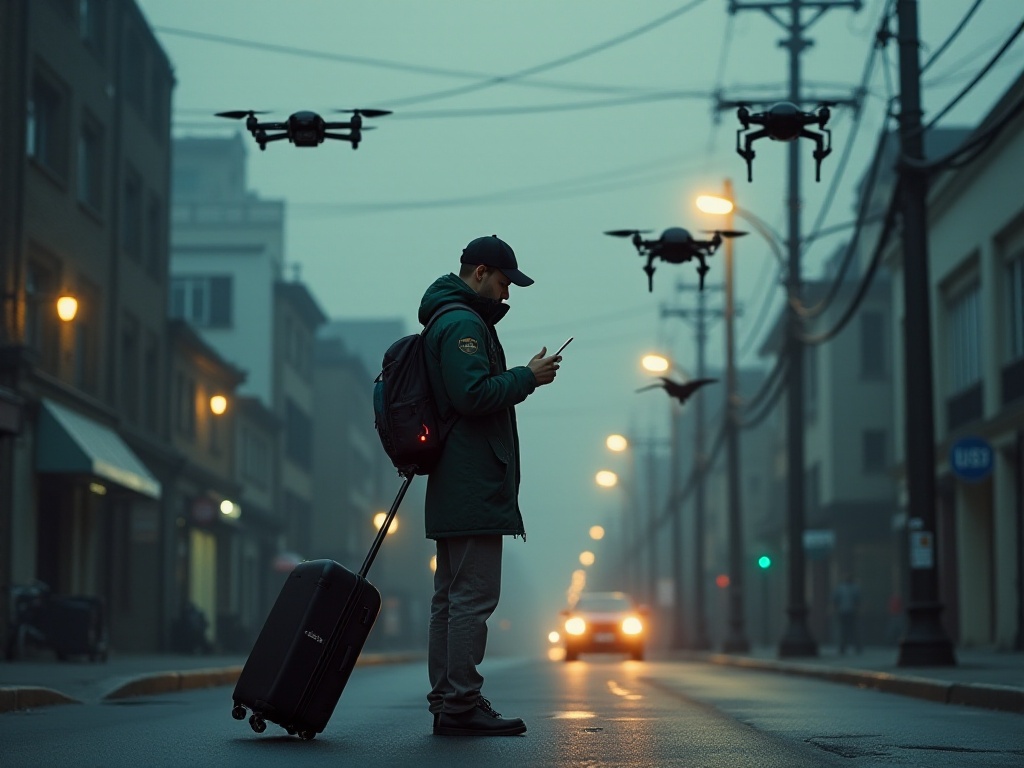
Essential Safety Guide for Solo Female Travelers in 2024: From Hotel Booking to Scam Prevention
A comprehensive guide covering travel safety aspects including accommodation security, personal belongings protection, and behavioral safety. Provides practical advice on lodging preparation, valuables management, document security, and scam prevention for travelers
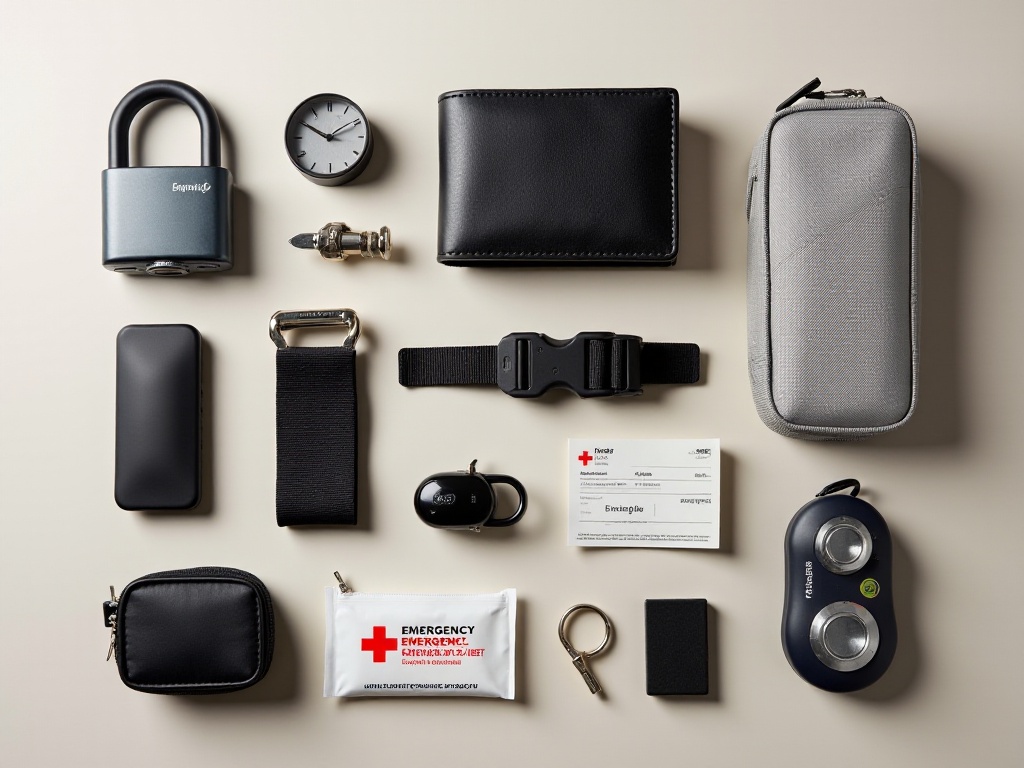
Safety Guide for Solo Female Travelers Abroad: A Veteran Travel Blogger's 10 Years of Experience
A comprehensive travel safety guide covering pre-trip preparation, personal security, accommodation safety, and emergency readiness. Offers practical safety advice and best practices for travelers, from accommodation planning to fraud prevention
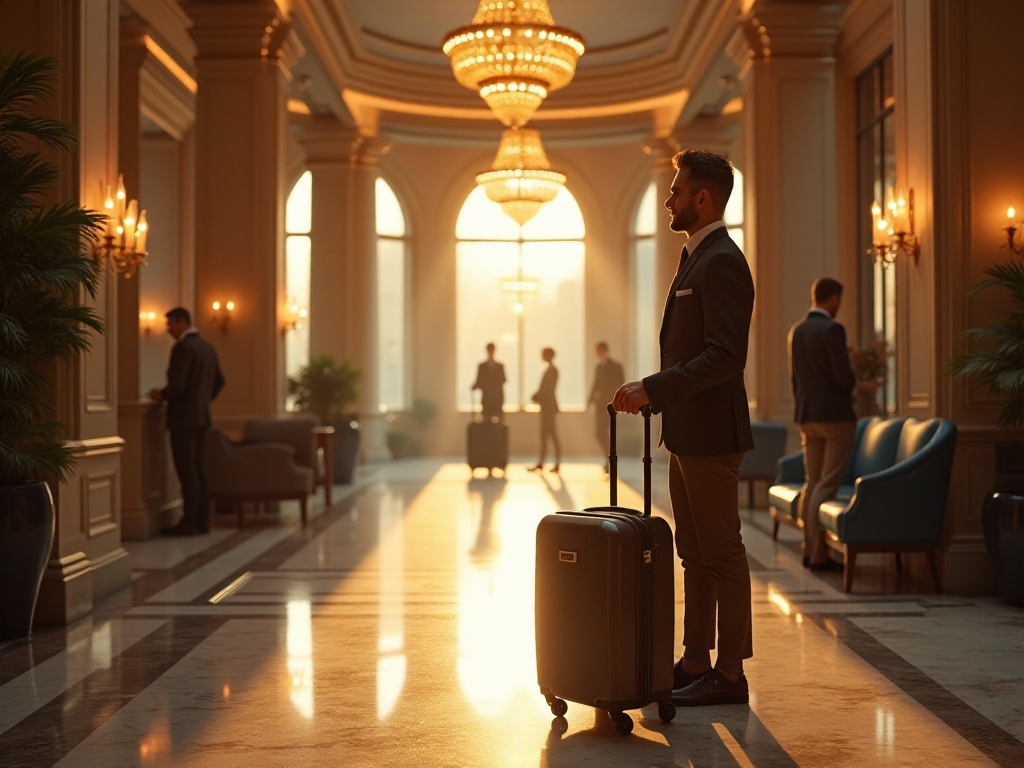
First Time Traveling to Japan Alone? Don't Miss These Essential Preparations! A Comprehensive Guide
A comprehensive guide covering essential travel safety preparations, including document management, luggage security, accommodation safety, and personal property protection, helping travelers minimize risks during their journey.

